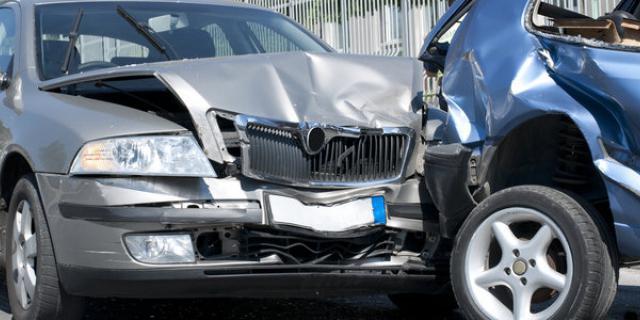Voluntary accident insurance guarantees financial support for insured persons and their families in case of emergency. The total amount of compensation can be chosen independently, taking into account your own level of income and the degree of risk in the chosen profession or hobby. If the breadwinner in the family died or became disabled as a result of an accident, his family will receive financial support and will not end up without a livelihood.

Possible accident - a reason to think about insurance
We are so used to living in a dangerous world that we are not aware of the tragic accidents awaiting us. Dangers can overtake us in the most unexpected places: during meals, playing sports, traveling by public transport and more. Any types of accidents: from simple malaise to severe injury - bring not only excruciating pain, but also heavy material costs. In addition to the mandatory costs of treatment and the purchase of medicines, the patient expects a temporary disability. And if the disease is severe enough, the victim may remain disabled - and this will most sadly affect the welfare of himself and his family.
Not surprisingly, voluntary accident insurance in developed countries is a must for all segments of the population. Without insurance, it is impossible to get good health care or to find a decent job. And child insurance has become mandatory in many countries. Gradually, understanding of the need for insurance comes in our country.
What you can insure against
A voluntary accident insurance policy can be purchased in favor of the person who signed the contract or in favor of third parties. The types of accidents for the prevention of which policies are purchased are listed below. It:
- getting injured;
- disability due to an accident;
- hospitalization followed by surgical intervention due to an accident;
- disability due to injury;
- death.
Voluntary industrial accident insurance does not cover cases in which the nonrandom nature of the damage is proved. This applies to situations where the insured person caused an accident due to alcohol or drug intoxication. Insurance indemnity will not be received even if the injury was received due to the commission of illegal actions.

Accident Insurance Forms
At the moment, insurance companies sell insurance against accidents in two forms:
- protection of individual individuals;
- corporate (group) insurance.
In the first case, the buyer of the policy insures himself or another person and independently pays the mandatory contributions, in the second - the company bears such costs. Corporate insurance implies that the policy is issued not for single employees, but for the entire staff of the workshop, department or organization as a whole. Moreover, the period in which the insurance regime operates is limited to working hours or weekdays - at the discretion of the enterprise administration.

How does a corporate policy work?
The corporate type of insurance assistance pays accident insurance contributions voluntarily, based on the principles of labor protection and a loyal policy towards its personnel. Such insurance is natural for European and North American corporations, where insurance is a mandatory component of the social package. A collective insurance policy is a serious financial support for company employees, since in the event of an accident everyone will be able to count not only on voluntary contributions from colleagues, but also on a substantial financial assistance for their own family. Such policies are also beneficial for an organization that has entered into a corporate voluntary accident insurance contract: this raises the organization’s prestige and protects it from unforeseen expenses, including fines from the labor protection inspectorate, expenses for lawyers and family support for the injured employee. In addition, the cost of insurance portfolios is much cheaper than the purchase of individual policies for each employee.
Types of insurance
Insurance contracts are concluded forcibly or optionally. In the first case, the company obliges the law to sign the contract. In the second, the employee’s voluntary desire to compensate for probable expenses. Consider these two types of insurance in more detail.
Compulsory accident insurance is guaranteed by law for certain categories of citizens involved in certain social or economic spheres of activity. These are the military, representatives of law enforcement agencies, employees of the Ministry of Emergencies and so on. A few years ago, compulsory passenger insurance was also necessary, but now this item has been canceled and replaced with carrier liability insurance.
Voluntary accident insurance is based on the free choice of the insured. At the heart of the desire to insure is a healthy and logical desire to provide for your family in case of loss of working capacity. The insured person independently determines for how long a contract should be concluded and how much should be considered as insurance compensation.
Accident Insurance Rules
To apply for a voluntary accident insurance policy, you will need a passport and a handwritten application. But if you intend to purchase targeted insurance for millions of rubles or intend to engage in any extreme activities, the insurer may require additional certificates and documents from you.
Contract restrictions
The insured person is obliged to familiarize themselves with certain restrictions imposed by the insurance organization. The basic conditions of voluntary accident insurance limit various aspects of the contract: restrictions may relate to the applicant's age, final compensation, health status (insurers are reluctant to provide accident insurance to seriously ill citizens, people with disabilities).
Insurance period
An important point of any policy is the coordination of insurance terms. They can be offered by the insurance company itself, or they can be agreed upon by the insured person.
The agreed period may be:
- round the clock;
- for the period of occupation by professional activity and moving from the place of work and back;
- only for the period of performance of official duties;
- for a previously agreed time (during a sports day or a bicycle tour, etc.).

In general, an insurance contract can be concluded for a different period - from a day (for example, for the period of moving) to tens of years. If voluntary insurance is issued, applicants most often buy a policy for an annual period, sometimes for a couple of years.Lifetime accident insurance in Russia is rare, although in Europe and the USA this has long been common practice. In this case, contributions are paid almost all my life, and upon reaching an unworkable age the insured person is also waiting for a pension increase.
When insurance takes effect
The date on which insurance begins to operate is necessarily indicated in the contract. Typically, the insurance period starts from the day following the day the insurance premium is paid. The down payment is calculated based on the expected insurance compensation, and can be calculated in the range of 0.1% - 10%, depending on the set of risks. The policy is proposed to issue in various options:
- With round-the-clock coverage guaranteeing the provision of insurance anywhere in the world, with a complete list of risks. This includes active sports or extreme labor. If an accident occurs, and after it severe consequences occur (an operation due to a fall from a height, for example), monetary compensation will be made for all events that have occurred. Such a life insurance contract is chosen by people who want to protect themselves and loved ones.
- An hourly or daily coverage policy. Such insurance covers a certain period of time - for example, travel time, sporting events, etc. This also includes child insurance at various sporting events. Such policies are most often concluded by the organizers of various competitions who wish to minimize possible risks. If the incident has gone beyond the time and place specified in the contract, then it will not be considered an insurance event, and compensation for it will not be charged.

Procedure for an insured event
A voluntary insurance contract does not absolutely relieve the beneficiary of the necessary actions that will help him reduce the damage caused by a combination of circumstances. On the contrary, an ambulance that was not promptly called, neglect of medical advice, may become the basis for the insurance company to refuse compensation for losses.
So, what must be done when an insurance situation arises:
- Seek medical advice immediately.
- Notify the insurer of the incident (as a rule, this can be done no later than thirty days after the event).
- Submit to the insurance company an application for reimbursement along with documents certifying the occurrence of the insured event.
- Upon the death of the insured person, the final beneficiary (whose status is confirmed by the life insurance contract) or the successor of the insured should submit to the insurance company documents certifying the right to receive reimbursement (an order on the appointment of the beneficiary or an inheritance act, which should be received by the recipient six months after the death of the insured faces).
- When applying for insurance compensation, a passport and a policy should be submitted (the necessary register of documents can be obtained from the insurer).
- The representative of the company studies the validity of the application within 10-60 days, calculates the final amount of the insurance payment and transfers it to the client, if the latter has submitted the necessary documents and there are no reasons protesting the occurrence of the insured event. An accident litigation can transfer payment of compensation: until the court verdict, the insurer will not be able to settle the insurance event and make a payment.
- If you want to appeal the amount of compensation or the refusal of the insurance company, you have the right to write a statement to the supervisory authority.
Insurance Rates
For standard insurance packages, the insured person can independently determine the size of the contribution and the possible insurance payment that he can afford. The contribution is calculated based on the set of risks specified in the package.The more risks inherent in the insurance portfolio, the higher the down payment will be. The insurer determines the upper and lower border of tariffs independently. It can begin with 0.12% of the probable amount of compensation and end with 10% for the most risky types of insurance. What determines the final contribution?
- the main work of the insured person (the more risky it is, the more contributions);
- current hobbies (for lovers of risky sports, fees increase);
- the age of the insured (older people, minors will have to pay more);
- gender (for men who have crossed the forty-year milestone, the cost of insurance increases markedly);
- health and well-being of the insured (premiums are higher for those who suffer from chronic ailments);
- insurance history (for regular customers, insurers reduce the tariff);
- the number of insured persons (contributions under corporate contracts, family insurance programs are reduced);
- insurance period (for each subsequent year the contract is valid, the insured person will be surely given a discount on the insurance premium);
- the number of insured risks (the more there are, the higher the price of the policy);
- insurance company policy.

The amount of payments after the occurrence of the insured event depends on the types of prescribed risks. If, as a result of circumstances, the insured person temporarily lost his ability to work, a daily cash benefit is assigned, depending on the fixed part of the insurance indemnity. If a person has become completely incapable of work, a one-time payment awaits him, making up a certain proportion of the total amount of the insurance policy. Finally, as a result of the death of the beneficiary, either full compensation or double full compensation awaits, depending on the terms of the insurance contract.
Everyone has the opportunity to pay insurance premiums at a time or in installments according to the schedule agreed with the insurance company. Before signing the insurance contract, it is necessary to familiarize yourself with the footnotes and supplements written in small print, and discuss with the insurer all incomprehensible points. So you will avoid serious disagreements in the event of an insured event and will reach a compromise without judicial intervention.